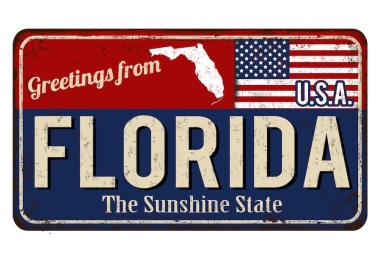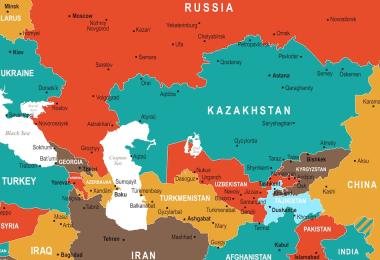Supermarket private wine labels have earned a reputation as a race to the bottom. It stems from the prevailing practise of sourcing inexpensive juice, pressuring producers to sell at impossibly low prices, and then applying high margins. In this equation, the paltry remuneration and lack of brand equity does not benefit the producer. Nor does this model favour the consumer who ends up paying too much for substandard wine. The only winner is the supermarket.
If this is the rule, then Iper’s Grandi Vigne brand seems to be the exception.
The chain
Iper, La grande i is a chain of hypermarkets counting 27 stores in seven provinces throughout Northern and Central Italy. A subsidiary of Gruppo Finiper, it was founded in 1974 by Marco Brunelli, one of the pioneers of large-scale retailing in Italy.
Iper was the first Italian superstore chain to launch its own private label in 2006. “In Italy, there aren’t many private labels within large-scale retail distribution,” explains Dr Antonella Emilio, director of external relations for Iper Montebello. “It’s a relatively limited phenomenon.”
Other significant private labels include Selex’s La Vie dell’Uva and Coop Italia’s Assieme. Iper’s Grandi Vigne brand distinguishes itself in two ways. Rather than working with large bottlers and social cooperatives, Iper sources from small, family-owned properties who craft wine exclusively from their own grapes. Dr Emilio also maintains that the project is unique in terms of the price range the wines sit in, “Medium to medium-high, and rarely entry level.”
The Grandi Vigne label was born through a collaboration between Iper and a Piedmont-based consulting company called Think Quality. Specialising in projects in the agri-food business, Think Quality was established in 2001 by IT expert Paolo Masoero and oenologist Fabrizio Stecca, who trained at the Scuola Enologica di Alba. Following the mad cow disease crisis, Iper engaged Think Quality to help them develop their own Patto Qualità Iper (Iper Quality Pact) brand, a collection of short food supply chain products including fruit, salami and cheese. “This was a sensitive period for large-scale retailers, when values such as transparency, guarantee of origin, and traceability became a priority,” says Dr Emilio.
As there was no wine amongst these products, Think Quality’s Stecca saw an opportunity. He sold Iper on the project by inviting its wine buyer at the time to visit one of the growers he had in mind. “I explained that it was best he come to an estate so that he could truly understand what our idea was,” recalls Stecca. The visit to the Adriano Marco e Vittorio estate in Barbaresco was strategically planned during harvest. It was Vittorio Adriano’s sincerity, frankness and passion for his terroir and craft that sealed the deal. “All of the producers we work with are like this,” Stecca declares. This is integral to his sourcing.
Before selecting a winery, the Think Quality team goes to the area and meets with producers to see the facilities, evaluate their practices, and ensure that they have the vineyards they claim. They taste finished wine as well as from the barrel. Stecca emphasises, “It is very important for us to understand the average quality of the appellation then establish a relationship with the price.” If the low end is €3.00 ($3.21) and the high end is €8.00, they aim to come in at €5.00. Above all, they looked for producers making high-quality wine comparable to the greatest estates but proposing a lower price. The wines that make it into the Grandi Vigne label are never second selections.
The launch
Grandi Vigne launched with nine wines. They corresponded to the most important appellations in regions where Iper already had outlets, such as Prosecco DOC in the Veneto, Sangiovese di Romagna DOC in Emilia-Romagna, Rosso Piceno DOC in Marche and Montepulciano d’Abruzzo DOC in Abruzzo. Unlike traditional supermarket own-labels, Iper’s does not bear the name of its store. Instead, the wines are branded solely under the Grandi Vigne moniker. The label includes the denomination, name and picture of the vineyard it comes from, and, on the back label, the producer who bottled it.
“I find this a very correct way to present oneself to the consumer,” says Stefano Cesari, owner of Brigaldara estate in Valpolicella. He has been supplying Valpolicella Ripasso DOC and Amarone della Valpolicella DOCG for the project for the last eight years. He feels it allows Brigaldara to maintain its identity and also lets the consumer easily verify that the wine does indeed come from a small family estate.
Convincing quality producers with an established reputation to work with a supermarket chain was not without resistance. Though Lorenzo Marotti Campi in Marche has been providing Verdicchio dei Castelli di Jesi Classico Superiore DOC and Lacrima di Morro d’Alba DOC for the Grandi Vigne label for over four years, he was initially sceptical. “Large supermarket chains are always the big lion and we are the mouse. You never see the mouse talking with the lion.”
Eventually, Marotti Campi was reassured that it was a quality project by Stecca’s experience as an oenologist and the fact that he was contacting small artisanal producers. Furthermore, Iper wasn’t demanding an entrance fee, which is typical for placement on the shelves of national supermarket chains. Most importantly, they weren’t squeezing the prices. While Marotti Campi sells Iper his Lacrima for just under €4.00 rather than his €5.00 list price, this is a standard quantity discount and not much less than what he charges the on-trade. Similarly, Cesari confirms selling his wine to Iper at a 20% discount.
The price Iper sells the wine for is equally important. Cesari had no qualms about working with a large-scale retailer, provided it respected the prices consumers paid at the estate. Tre Monti in Emilia-Romagna is one of the nine original producers involved in the Grandi Vigne project. Speaking on behalf of his family’s estate, David Navacchia feels that Iper sells for the proper price on the shelf. “The reputation of our winery isn’t diminished because our wines are in a supermarket.”
While Iper wouldn’t comment on specific margins, Dr Emilio affirms that for the Grandi Vigne label they are comparable to those for other wine brands Iper carries.
From the producers’ perspective, working with large-scale distribution can offer a number of advantages. In the case of Grandi Vigne, quantities represent approximately 3% to 10% of a winery’s total volume. It is an appealing option for wineries looking to increase sales. Volume purchases also offset logistic costs. Providing a pallet of wine to one single customer is much less expensive than shipping smaller amounts to multiple clients. Above all, payment is essentially guaranteed. Italy has strict regulations for large chains and Iper pays within 60 days of shipping. By comparison, both Cesari and Marotti Campi point to the unpredictability of working with restaurants. “You are never going to see the money if they don’t want to pay,” Marotti Campi concedes.
In the grand scheme of things, quantities for each wine are relatively small, ranging from 5,000 bottles of Barbaresco DOCG to 40,000 bottles of Prosecco Valdobbiadene Superiore DOCG. While Iper does not work with specific contracts, “Ensuring the necessary volume to cover potential sales is one of the criteria considered in selecting a supplier,” explains Dr Emilio. They must also be able to deal with increases.
This has its limits, though, as Navacchia points out. The wine Tre Monti makes for Grandi Vigne comes exclusively from a designated vineyard. “When the wine is sold out there is nothing left,” he says. “It is a unique limit for a supermarket chain because the target is usually to sell as much as possible.”
Growth
From the original nine wines, the Grandi Vigne brand has grown to 76 from 36 producers, all of which are available in Iper’s 27 locations. They represent Italy’s most important and best-known denominations. Annual sales reached 700,000 bottles, corresponding to 9.3% of the total value of wine sold at Iper stores from November 2015 to October 2016. Since its inception, the line has demonstrated constant double-digit growth, with a peak of 70% in the third year of activity. This growth is due largely to increase in the number of SKUs.
Between Iper and Think Quality, the selection has become a collaborative effort. Both follow the market in order to determine what consumers will be asking for. Not all wines work. Stecca identifies three that haven’t been successful – a Grillo from Sicily, a Friulano, and a Castel del Monte DOC. Timing is key. Usually they get it right.
While organic wasn’t a big topic when Grandi Vigne debuted, the market eventually began asking for wines made from organically grown grapes. Since 2011, Iper has introduced ten organic labels. The search was just as rigorous as for other wines. They opted for producers who already had a track record of organic viticulture for at least 10 years prior. “It was crucial that these producers hadn’t simply adopted organic practises to appeal to the market,” explains Stecca, “rather than that they were convinced that this was the best way to farm.”
The most recent addition is a line of wines with no added sulphites released in October 2016. It includes a Chardonnay and a Sangiovese from Tre Monti, who originally proposed the idea to Think Quality.
Navacchia recognised that Stecca had always been interested in low-sulphite wine demanding a max of 80mg per L for Grandi Vigne’s regular line. When Tre Monti started making wines with no added sulphites seven years ago, Think Quality followed the wines closely. Stecca welcomed the proposal, but stipulates, “It was up to Think Quality to determine if the market was ready for wines with no added sulphites.” It was also vital to everybody that the wines demonstrated reliable stability and an ample shelf life.
With Grandi Vigne, Iper is able to offer an exclusive line which helps them build customer loyalty. “Beyond this, we had the possibility to build a project expressing the philosophy of Iper, with a high level of ethical values underlying the project itself,” says Dr Emilio. She points to the short supply chain, wines made by growers, low levels of sulphites, sustainable production, and the high level of attention to the environment thanks to the introduction of the organic wines.
This is one private label that is rerouting the race. Rather than aiming for the bottom, the finish line is a happy medium where all participants win on some level.








